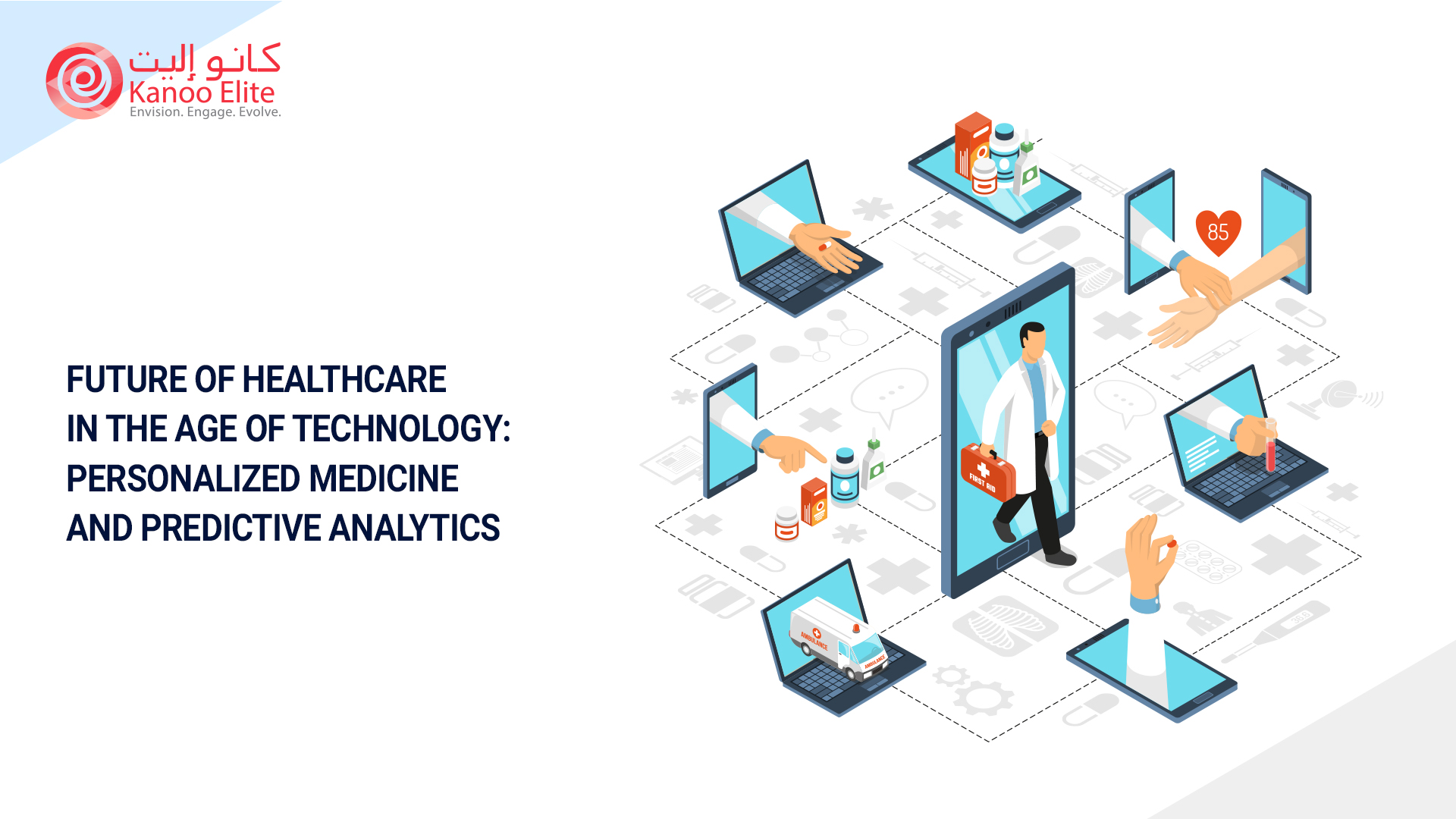The healthcare industry is undergoing a transformation driven by technological advancements that are reshaping the way care is delivered, managed, and experienced. Among the most impactful innovations are personalized medicine and predictive analytics, which promise to revolutionize diagnosis, treatment, and patient outcomes. As we move deeper into the digital age, the integration of these technologies with traditional healthcare practices is likely to mark the future of medical care.
The Rise of Personalized Medicine
Personalized medicine, also referred to as precision medicine, is the tailoring of medical treatment to individual characteristics of each patient. This approach diverges from the traditional one-size-fits-all model by leveraging information about a person’s genetic makeup, lifestyle, and environmental factors to design highly targeted therapies. Personalized medicine represents a significant shift in how healthcare professionals diagnose diseases, recommend treatments, and even prevent illness.
How Personalized Medicine Works
At its core, personalized medicine utilizes genetic information to predict how a patient will respond to certain medications or treatments. This approach helps healthcare providers identify the most effective therapies with fewer side effects. For example, in cancer treatment, genomic testing can identify specific mutations driving the cancer’s growth, allowing physicians to select targeted therapies that inhibit those particular mutations, rather than relying on generalized treatments like chemotherapy.
Genomic information isn’t the only factor; wearable devices, lifestyle tracking apps, and patient health records all contribute to creating a holistic view of the patient’s health. With artificial intelligence (AI) and machine learning (ML) tools, vast quantities of data can be processed to produce personalized health recommendations that go beyond genetic factors, offering advice on diet, exercise, and lifestyle changes.
The Impact on Chronic Diseases
One of the most significant applications of personalized medicine is in the treatment and management of chronic diseases like diabetes, heart disease, and autoimmune disorders. Chronic conditions are often influenced by complex interactions between genetics and environmental factors, making personalized treatment plans especially beneficial.
In diabetes care, for instance, personalized medicine enables doctors to consider factors like genetic risk, blood sugar variability, and patient lifestyle to create individualized treatment plans. This might include selecting the most effective medication, recommending lifestyle changes specific to the patient’s genetic disposition, or using continuous glucose monitoring systems integrated with AI to adjust insulin dosages in real-time.
The Promise for Rare Diseases
Personalized medicine has also opened new doors for patients with rare or previously untreatable diseases. Genetic sequencing can identify mutations responsible for rare disorders, guiding the development of new therapies. This has been especially impactful in diseases like cystic fibrosis or certain forms of muscular dystrophy, where precision treatments based on a patient’s unique genetic profile are making significant improvements in quality of life and disease outcomes.
The Role of Predictive Analytics in Healthcare
Predictive analytics refers to the use of historical data, statistical algorithms, and machine learning techniques to identify the likelihood of future outcomes based on past data. In healthcare, this tool has enormous potential to foresee patient trends, optimize treatments, reduce hospital readmissions, and improve overall population health.
Preventing Disease Before It Starts
Predictive analytics excels in risk prediction, offering healthcare professionals the ability to prevent diseases before they occur. By analyzing patient data, such as genetic predisposition, family history, and lifestyle factors, predictive models can assess an individual’s risk for developing specific conditions like heart disease, stroke, or cancer.
For instance, AI-powered predictive analytics can forecast cardiovascular risks by analyzing patient history, cholesterol levels, blood pressure, and genetic factors. Armed with this information, physicians can recommend preventive measures like dietary changes, medication, or lifestyle interventions to reduce the likelihood of a future event.
Moreover, predictive analytics can also predict the likelihood of patients developing certain types of cancers. A combination of genetic testing and AI algorithms can assess whether a patient is at high risk for breast cancer, colon cancer, or other forms, prompting earlier screenings or preventive measures such as lifestyle modifications or preventive surgeries.
Improving Hospital Efficiency and Patient Care
Predictive analytics is also being used to improve hospital operations, reduce costs, and optimize patient care. Hospitals can use predictive models to anticipate patient volumes, helping them allocate resources more efficiently and reduce bottlenecks in emergency departments or intensive care units. This approach ensures that medical staff and resources are available when needed most, improving overall patient care and reducing wait times.
Additionally, predictive analytics can be used to identify patients who are likely to be readmitted within 30 days of discharge. By analyzing patient data such as age, diagnosis, medication adherence, and social determinants of health, hospitals can predict which patients are at high risk for readmission. Targeted interventions, such as follow-up appointments, medication reminders, or home health services, can then be implemented to reduce readmissions, improve patient outcomes, and save healthcare costs.
Personalized Treatment Plans
Predictive analytics is also advancing the effectiveness of personalized medicine by helping clinicians develop more accurate treatment plans based on patient data. For example, cancer treatment plans can be customized to the molecular and genetic profile of a tumor, allowing for more precise interventions. With AI-powered tools, doctors can predict how a patient will respond to certain therapies based on their genetic information, medical history, and environmental factors. This ensures that treatment plans are optimized for each individual, leading to better outcomes and fewer side effects.
The Convergence of Personalized Medicine and Predictive Analytics
Personalized medicine and predictive analytics are not mutually exclusive. In fact, their combination holds the key to unlocking the future of healthcare. By integrating the two, healthcare providers can use predictive models to forecast disease risks while also tailoring medical interventions to the individual patient. This synergy could transform healthcare from a reactive industry into a proactive one.
Personalized Health Monitoring and Early Detection
The use of wearable devices, mobile apps, and health sensors has allowed patients and healthcare providers to continuously monitor vital signs, physical activity, and other health-related metrics. Predictive analytics can analyze this data in real-time to detect early warning signs of disease, allowing for early intervention.
For example, in heart disease, wearable devices can track heart rates and rhythms to detect abnormalities like atrial fibrillation (AFib). Predictive algorithms can then alert patients and physicians to potential heart problems, enabling timely medical intervention and preventing more severe cardiac events.
In diabetes management, continuous glucose monitors (CGMs) paired with AI-based algorithms can predict dangerous spikes or drops in blood sugar levels, prompting the patient to take action before a crisis occurs.
The Role of Big Data and AI in Enhancing Predictive Models
The proliferation of health data from electronic medical records (EMRs), genomic testing, and wearable devices has created vast pools of information that are fueling predictive analytics. With AI and machine learning, these large datasets can be processed to identify patterns and trends that human analysis alone could not detect.
For instance, AI can analyze hundreds of thousands of medical records to detect early warning signs of cancer that may be missed by human doctors. In some cases, predictive analytics has demonstrated the ability to outperform traditional methods of diagnosis, offering the potential for earlier, more accurate detection of diseases like lung cancer or Alzheimer’s disease.
Ethical Considerations and Challenges
Despite the immense promise of personalized medicine and predictive analytics, challenges remain. Concerns around data privacy, security, and the ethical use of patient information are significant. As healthcare becomes increasingly digitized, ensuring that patient data is protected from breaches and misuse will be critical.
Additionally, there are concerns that predictive analytics could exacerbate healthcare inequalities. If predictive models are trained on biased or incomplete datasets, they may lead to unfair treatment decisions, particularly for underserved populations.
Conclusion: The Future of Healthcare
The future of healthcare is undeniably intertwined with the advancement of technology, particularly in personalized medicine and predictive analytics. As these technologies continue to evolve, healthcare will become more proactive, predictive, and personalized. By leveraging genetic data, real-time monitoring, and AI-driven insights, healthcare providers will be able to deliver treatments that are more effective, reduce the risk of disease, and improve patient outcomes. However, ethical considerations and challenges in data security must be addressed to ensure that these innovations benefit all patients equitably. The future of healthcare promises not just longer life, but better quality of life through targeted, data-driven care.



